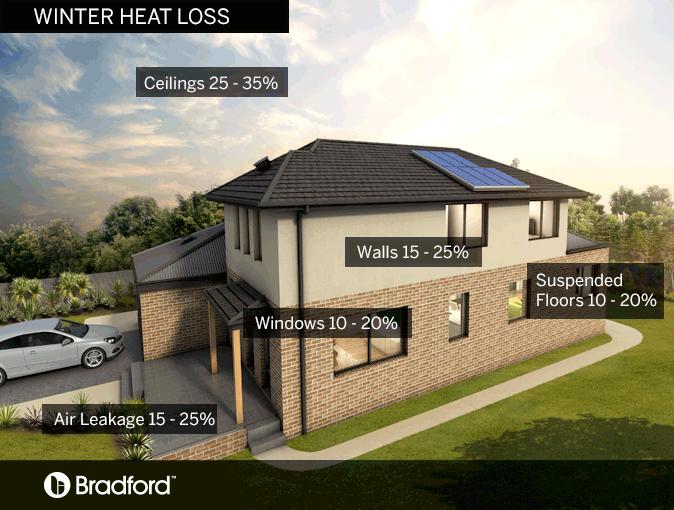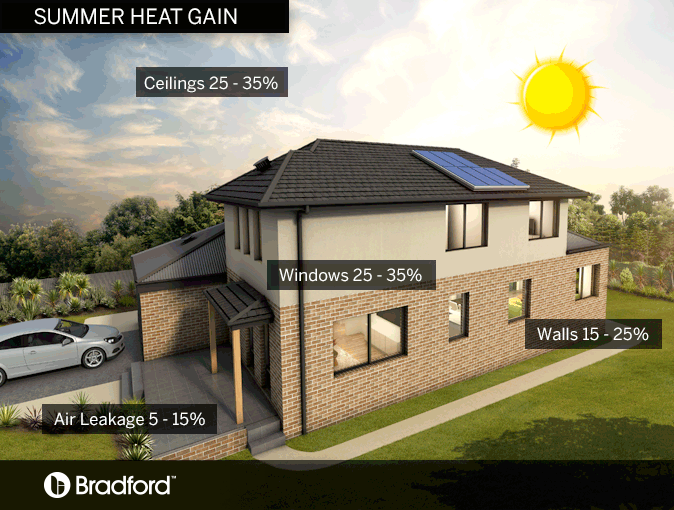CSR Bradford explains the science behind thermal insulation segments
Understand how insulation works. Ensuring your home is well-insulated can cut your cooling and heating bills by up to half and provide year-round comfort.
Insulation used in buildings works as a barrier to hinder the movement of heat in or out of the living areas. By reducing heat flow, insulation helps keep the living spaces in your home cooler in summer and warmer in winter, reducing the need for artificial heating and cooling. This makes well insulated buildings more energy efficient, making them cheaper to run which is also good for the environment.
Heat naturally shifts from higher to lower temperature areas until the temperature is the same in both areas. Insulation works to reduce this heat transfer. This is the same way an insulated esky will keep drinks cold in summer even when the temperature outside is sweltering.
Insulation helps prevent heat loss in winter

When it’s cool outside and the home is being heated, internal heat can escape from a home if it is poorly insulated. The internal heat conducts outwards through the roof and walls and hot air escapes through gaps around windows and doors by convection. Floors of a home generally conduct heat, losing precious heat to the cool ground below. An under insulated home in winter can lose up to 35% of your expensive internal warmth through the ceilings, another 25% through the walls and up to 20% through the floor and windows. That’s a lot of expensive hot air to lose.
Insulation helps prevent heat gains in summer

When it’s hot outside, external heat will enter a home if it is poorly insulated. The sun’s radiant energy is absorbed and conducted through the roof and walls, radiant heat can enter via uncovered windows, and hot air can enter through gaps around windows and doors by convection. On a hot day, your home can gain as much as 35% of the internal heat through the ceiling if it is uninsulated.
Learn more:



